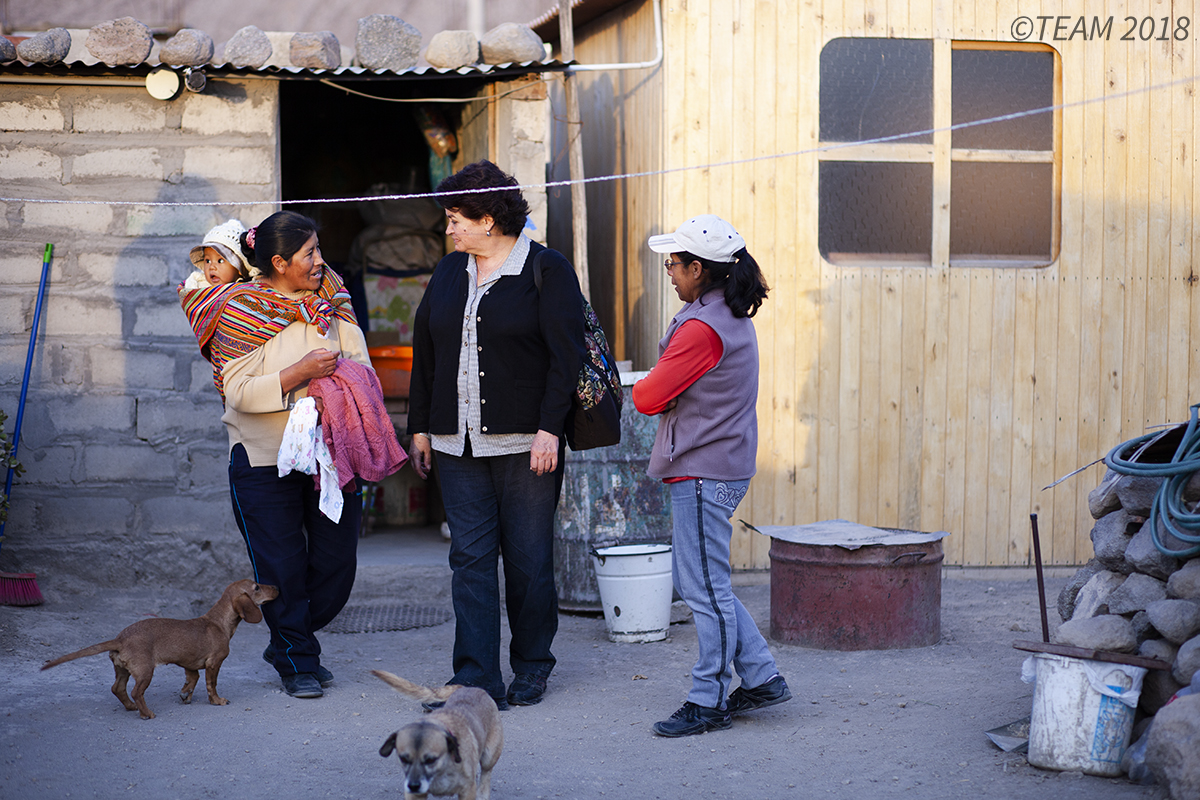
Becoming a Missionary, Missionary Life
How Do You Truly Immerse Yourself in a Culture?
February 26, 2019
by admin

Cultural immersion is a term that’s thrown around a lot in the world of missions. Missionaries are told they need to “integrate” — engage in the local daily life and try to understand the local people.
Of course, this is easier said than done.
How do you immerse yourself in a culture while also taking time to learn the language, find schooling for your kids and help your family adjust to life overseas?
Fortunately, you’re not the first to face this dilemma. Here are some words of wisdom from those who have done it before:
Learn the Language
The importance of language learning may seem obvious. And yet, many missionaries share how they regret not taking it more seriously when they started out. It’s easy to be overwhelmed by ministry opportunities and exploring the local culture. But do not let your language studies sit on the back burner.
Even if you serve in a country where most people speak English, it’s vital that you learn the local language.
Learning the language shows people you’re willing to put real work into cultivating friendships. Instead of constantly forcing them to make up for the communications gap, you’re taking equal steps to deepen the bond you share. And when people can share in their mother tongue, they’re more likely to share deeply.

One of the best ways to learn a new language is spending time with people who speak it. TEAM missionary Zach Harrod suggests spending time at local cafes where you can meet new people.
TEAM missionary Zach Harrod stresses the importance of language learning when it comes to building relationships.
“I decided early on, if I’m gonna get this language, ever, and if I’m gonna have real relationships, I just need to be amongst people. So honestly, while I had a great flat that I lived in, I wouldn’t study there,” he says. “I’d study at cafes, where I knew people were that I could meet, or my friends were there, or potential friends or whatnot. And I just put myself out there and continued to put myself out there to meet people.”
Even if you slip up and have to ask for help from time to time, working to learn the local language will stand out. And odds are local people will be happy to help you however they can!
Push Yourself to Make Local Friends
Making new friends often means stepping out of your comfort zone a little bit. And that might be the last thing you want to do if you’re feeling fatigued or depressed from culture stress.
Fortunately, many communities have social groups that are easy to join. Do some research. Find book clubs or hiking groups in your new town. And then push yourself to show up to every meeting. Get to know people, practice your language skills and have fun!
As you make friends, realize that friendship in your new culture might look different than the friendships you’re used to.
TEAM missionary Sue Querfeld says, “A close friendship in Peru doesn’t look the same as a close friendship in the States. You need to be outgoing and self-starting. But, at the same time, you need to be okay with a different kind of friendship than what you’re going to get [in the States].”
Some cultures are more relational than others. Some are more individual-focused. So it makes sense that cultural differences span the art of creating friendship as well. Once you’ve accepted this, you won’t set yourself up for disappointment with unrealistic expectations.
Do Things on Their Schedule
Sue’s husband, Craig, says the key to cultural immersion is to be “as Peruvian as possible,” while also understanding that you’ll never fully be a local.
“You follow their schedule. You do things their way. And you do that over time,” Craig says. “And you don’t have to try to walk that fine line between the two [cultures]. You can sort of pick the best of both and go.”

Every culture has its own rhythm of life. Learn to follow your host country’s schedule, and you may be surprised at how delightful this change of pace can be.
In Romania — where I spent a large portion of my childhood — the big family meal of the day is lunch, not dinner. It’s pretty customary for fathers to come home from work and kids to come home from school for one or two hours during lunchtime to enjoy a large meal with their families.
My family adopted this practice while we were living there, and we really liked it. To us, it made more sense than eating a huge meal right before bedtime. We were fortunate enough to be able to continue this even when we returned to the States — so we did!
We discovered this favored family tradition all because we made a conscious effort to do things on a Romanian schedule.
But in order to do things on your host country’s schedule, you have to be observant. That’s the key element to this step.
When do people in your new culture generally take vacations? When and how do they celebrate major holidays? What’s their favored mode of transportation?
Every culture lives by its own unique rhythm of daily, weekly and yearly life. Find your new culture’s rhythm and live in it.
Drop Your Presumptions — but Hold onto Your Distinctiveness
As a missionary kid in Paraguay, Josh McQuaid learned that it was important to drop preconceived cultural constructs before immersing yourself in a new culture. But he also says it’s important to recognize that you’re different than your local peers.
“It felt to me almost inappropriate not to recognize that I was from somewhere else. To me, it felt like a way to respect where they came from,” he says. “Not in a way of keeping division between us, but just respecting the fact that we could act like we weren’t from different places, but we were. So, it was better for me to be conscious of the fact that I was American, but I just didn’t … act like ‘the typical American.’”
The final — and maybe most crucial — step to cultural immersion is to live honestly and genuinely in your host culture.
This means dropping the “us vs. them” mentality. Don’t treat people like projects. Respect the differences between you, but don’t allow those differences to cause division.
Do you best. Ask for help. And be sincere.
Because in the end, there is good and bad in every culture. So be open and flexible. And keep in mind that cultural immersion comes with lots of time and patience.

